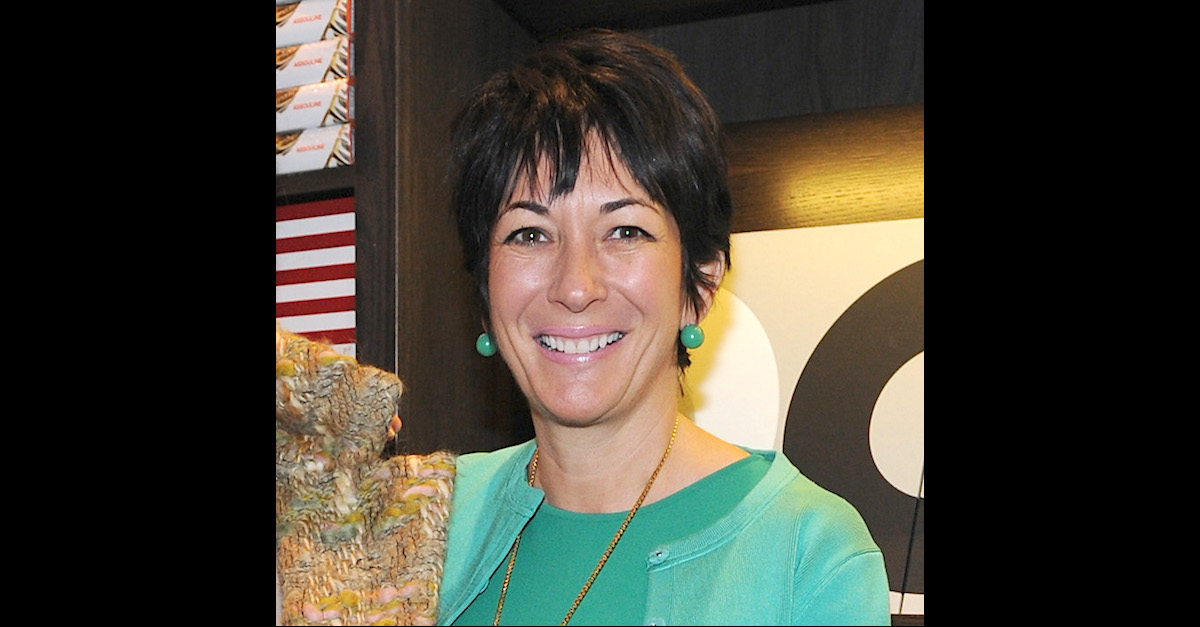
A federal judge late in the day Wednesday decided not to grant Ghislaine Maxwell‘s request to keep certain Jeffrey Epstein-related files hidden from public view. However, because Maxwell was likely to appeal the matter, the judge agreed to postpone the unsealing of some of those documents. The materials are widely believed to contain highly sensitive and likely embarrassing information about those who associated with Maxwell and Epstein.
“Ms. Maxwell’s eleventh-hour request for reconsideration is denied,” wrote Senior United States District Judge Loretta Preska. “As Ms. Maxwell acknowledges in her letter, reconsideration is an extraordinary remedy. Such motions are properly granted only if there is a showing of: (1) an intervening change in controlling law; (2) the availability of new evidence; or (3) a need to correct a clear error or prevent manifest injustice.”
None of those scenarios existed here; the issue was already “plowed ground,” the judge said:
Here, Ms. Maxwell’s request for reconsideration hinges on her assertion that new developments, i.e., her indictment and arrest, provide compelling reasons for keeping the deposition transcripts sealed. But, despite Ms. Maxwell’s contention that she could not address the effect of those events in her objections because they occurred after the close of briefing, this is plowed ground. Indeed, in her original objection to unsealing, Ms. Maxwell argued that the specter of ongoing criminal investigations into unknown individuals associated with Jeffrey Epstein–a group that, of course, includes Ms. Maxwell–loomed large over the Court-ordered unsealing process. This argument . . . carried with it the clear implication that Ms. Maxwell could find herself subject to investigation and, eventually, indictment. The Court understood that implication as applying to Ms. Maxwell and thus has already considered any role that criminal charges against Ms. Maxwell might play in rebutting the presumption of public access to the sealed materials. Ms. Maxwell’s request for reconsideration of the Court’s July 23 ruling is accordingly denied.
Then came the parsing of what would be unsealed, and when. The bulk of the documents that were scheduled for unsealing by Thursday are — as of the time of this writing — now subject to a more attenuated schedule (we’ve split up the paragraph and added emphasis to differentiate between the dates and sets of documents):
Given the Court’s denial of Ms. Maxwell’s request for reconsideration, the Court will stay the unsealing of Ms. Maxwell’s and Doe 1’s deposition transcripts and any sealed or redacted order or paper that quotes from or discloses information from those deposition transcripts for two business days, i.e., through Friday, July 31, 2020, so that Ms. Maxwell may seek relief from the Court of Appeals.
Any sealed materials that do not quote from or disclose information from those deposition transcripts shall be unsealed on July 30, 2020, in the manner described by the Court’s Order dated July 28, 2020.
Ms. Maxwell’s and Doe 1’s deposition transcripts and any sealed materials that quote or disclose information from them shall be unsealed in the manner prescribed by the July 28 Order on Monday, August 3, 2020, subject to any further stay ordered by the Court of Appeals.
TL/DR: While many of the documents are to be unsealed as early as Thursday, some will wait for Monday. That’s unless the Court of Appeals intervenes.
Read the judge’s order below.
Ghislaine Maxwell – Epstein Files – Order by Law&Crime on Scribd
Internal quotations and citations omitted from legal quotes.
[Photo by Craig Barritt/Getty Images for Assouline]